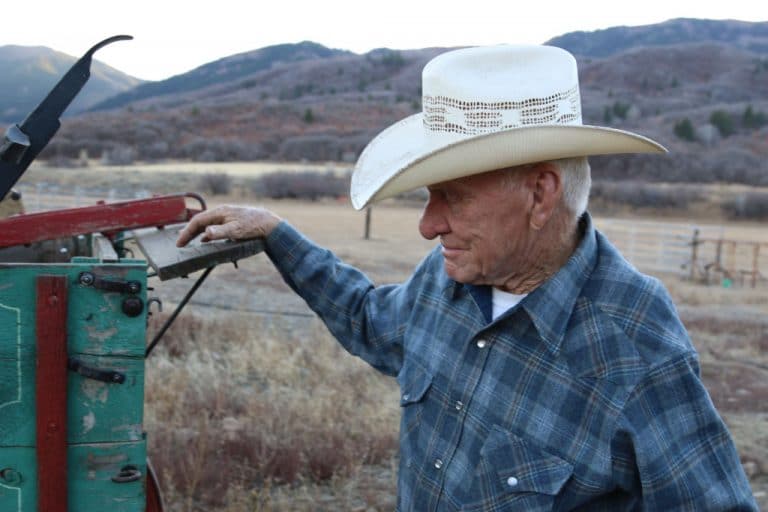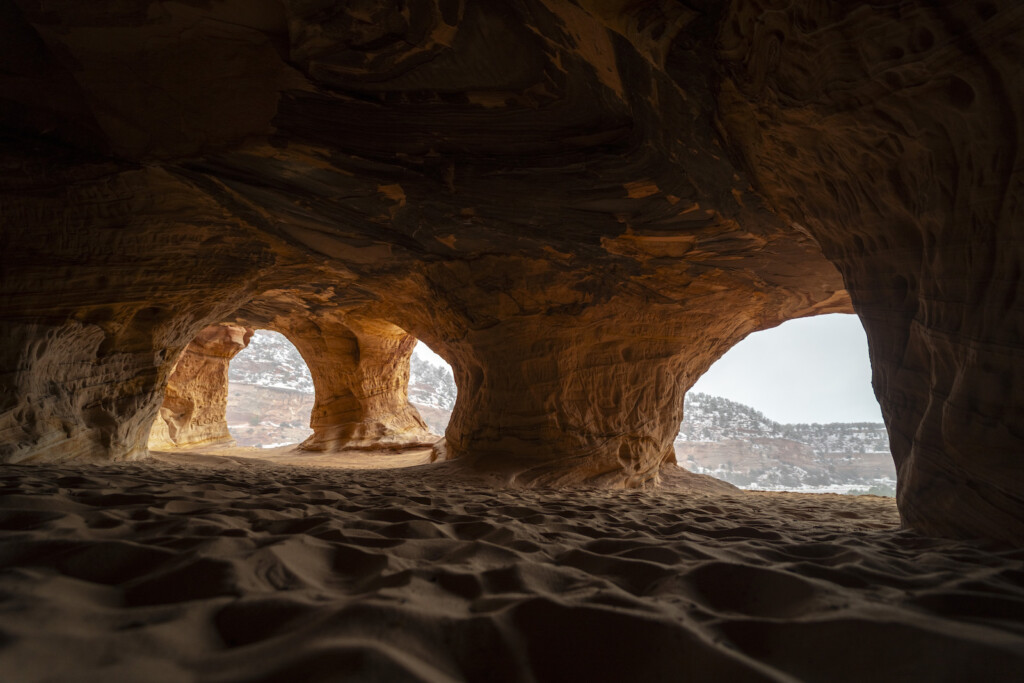
Cowboys and Horsemen: Bill Hadlock and Sons
Hadlock’s original family property was on 115 acres including the river bed. He moved to Liberty when he was eight, grew up on this land raising cattle and riding horses everyday. He was hired 55 years ago to manage the Browning’s Bar B Ranch in Eden. Hadlock’s son Lex’s property is just below his new house. The family members, Hadlock senior, and his three sons and grandsons, all have horse properties.
We travel a dirt road to reach him and encounter Hadlock’s daughter-in-law, Carri. She is friendly and seems pleased that we are here to “get the local perspective” on growth issues.
She takes us to meet 80-year-old Bill. He greets us with a warm smile and a firm handshake (despite Covid). Hadlock is thin; his skin is leathery; he looks just like a man who has spent his life outdoors.
On Hadlock’s table I see the family has won honors in national rodeo competitions. The Hadlock’s have become widely known for training cutting horses that do incredibly difficult turns and maneuvers. They have been on the cover of rodeo magazines and have won dozens of awards.
Bill Hadlock is a legend in the rodeo world. A collage of honors hangs on his wall along with a letter from former Senator Robert Bennett, stating, in part, “You embody the tradition, heritage and culture of the West.” Bill was the manager of the Browning Ranch for fifty-seven years.
Hadlock says he knows what it feels like to be “an outsider moving in.” When he first moved to this valley with his family at the age of eight, the locals didn’t immediately take kindly to them. He felt like he needed to prove his toughness.
The Hadlocks moved to their ranch in 1953, buying a few hundred acres with water for $4,000. “But,” he adds, “even back then they didn’t like a newcomer to the valley. That’s where it got its name, “Liberty,” with free roads to range. But everybody kind of got along together. Now it’s a different ballgame.”
“The county commissioners are trying to steal our water,” says Hadlock. There isn’t enough water for more people here, so they are digging wells deeper and deeper, which dries up our aquifers.” Hadlocks says he has received no sympathy from the County Commissioner or area politicians. “They are all developers themselves, so they want to get as many people in here as they possibly can. They are greedy and they want to cash in.”
The Hadlock’s said that their way of life is threatened by the developments happening in Ogden Valley. “We are all very independent. We don’t want to go work for people. We want to remain cowboys.”
The biggest problem they face is the opening up of new land to development. This problem, Hadlock points out, is that the newest house on his street “has five furnaces and 14,000 square feet. He has three or four boys. I don’t know where he came up with all of this cash. And the house next to him is a great big house. And they hauled up 20 loads of gravel to put a parking lot up there. I haven’t met any of them.”
The massive home required a new gas line to be put in. These additional infrastructure costs are being absorbed by the locals in property tax increases, according to Hadlock. Development projects are continuing to expand which lack the necessary infrastructure.
Hadlock says that, “Weber County has allowed them [newcomers] to build up Sagebrush Hill [where there is no water], and now the poor folks need to help pay for them to get water up there.”

The Politics of Water and Growth
Utah Stories spoke to County Commissioner Gage Froerer for comment, and this was his response to the claims that he was attempting to take the water rights of the Hadlocks and other local residents.
“[The Hadlock’s] are a long-time farming family. There is no question that people who have vacant ground feel like they are getting pressure.” But, he says that the county commissioners have nothing to do with the issue. “Water rights are regulated by the state. The water is all owned by the state and Weber Basin is under control of the drilling. Any water that isn’t allocated is controlled by the Weber Basin.”
Regarding property tax increases: “Property taxes are based on market value, and obviously if their property has increased 300%, then their taxes will increase. They can of course appeal this to the truth-in-taxation and the taxing agencies. Sixty percent of taxes go to schools. But it is really a function of market value. They have the ability to apply for a greenbelt status and pay much less in property taxes.”
Noise ordinances: “We have noise ordinances in place right now. We absolutely have those in place. Whether they got turned in or whether there is a sheriff. They just need to call the sheriff and get a license plate number.”
Water rights: Water is a personal property. A lot of time that is transferred. The only say we have in it, when somebody comes to us and wants to subdivide, is they need to have the water to do so.
But the Hadlocks say that they have seen a decrease in the amount of water they have access to. In answer to this issue, Commissioner Gage says, “Water notices go out, and they have typically 90-100 days to protest that well. If you are within a mile of that well, you have every right to protest.”
If they disagree with the values, or anytime there is a rate increase, there is a truth in taxation hearing, and they have a right to protest the changes.
Gage added, “I understand their concerns. Growth is never 100 percent good for everybody. We have people up there who are tired of farming.”
Regarding non-residents paying more in taxes: By state statute, non-residents pay 45% more in taxes on secondary homes. It has to be their full-time residence for six months and one day each year. If it’s a secondary home, they will pay the higher rate.
Under current law Weber County can justify reasons for taxing the locals out of the area. But if Eden, Liberty and Huntsville are to remain places where the western traditions remain, there will need to be changes to the laws. The state will need to increase property taxes more for non-residents and homeowners who choose to abide only weeks in their mansions every year, and reduce taxes for locals, and work on better methods for them to retain their water rights.
Ogden Valley Today: Is the booming real estate squashing out the local community?






